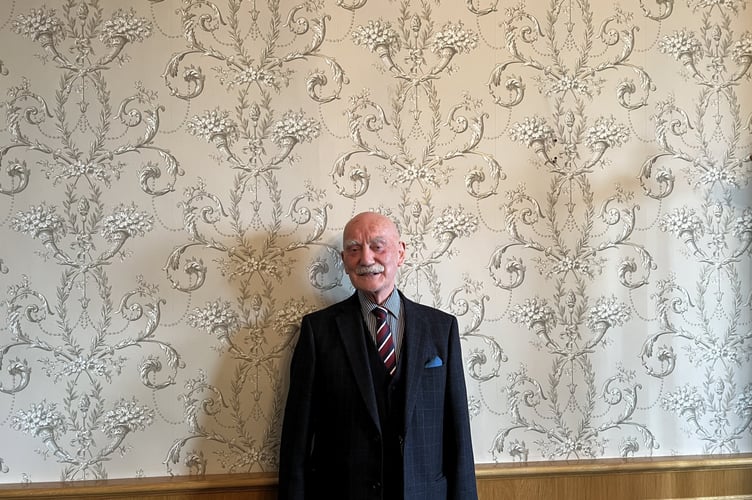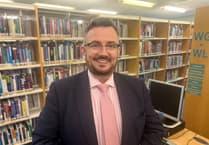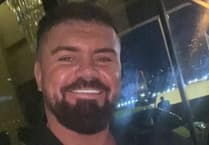A former law lecturer has said that the draft Assisted Dying Bill is in some aspects very vague.
Peter Murcott, who was a law lecturer at University College Isle of Man, and who stood as a candidate for the House of Keys in 2001, has read and critiqued the Assisted Dying Bill, which is set to have its second reading take place in the House of Keys later this month.
Ramsey MHK Alex Allinson introduced a bill on July 14 2022 which would give terminally-ill adults the right to, at their request, with specified assistance, end their own life.
Mr Murcott makes the argument that the bill is related to assisted suicide.
He makes this point, as in one clause of the Assisted Dying Bill it says: ‘In the Criminal Law Act 1981, after section 2 (abetment of suicide) insert – section 2 does not apply to any person in respect of the provision of assistance to another person in accordance with the Assisted Dying Act 2023.’
Mr Murcott said: ‘If you didn’t have that clause in, anybody who gave assistance under the bill would be liable to a charge of assisted suicide that carries 14 years imprisonment.
‘The clause is saying that the law against assisted suicide does not extend to if you give this sort of assistance, therefore, in complete legal logic, the bill is about assisted suicide, because if it wasn’t about assisted suicide, what’s that clause doing there?’
He added: ‘In May this year, unanimously the legislature adopted the suicide prevention strategy.
‘Under Public Health’s vision, the strategy says “The Isle of Man is a place where suicide is a thing of the past. People never get to the point where suicide seems like the only option”.’
‘They unanimously adopted the strategy, which is going to require public money to implement.
‘You’ve got then the assisted dying bill, which extends to assisted suicide in some circumstances.
‘Now you’ve got a complete contradiction here, because the assisted dying bill, under the explanatory memorandum, says “the bill involves an increase in expenditure, the consent of the Treasury has been obtained under Section 10 of the Treasury act 1985.”
‘And so here, you’ve got public money being spent on the prevention of suicide, and they want all suicides to be prevented by this strategy. But then you’d have public money on the expenditure, in certain circumstances for assistance to suicide.’
He said that according to one of the clauses, the decision of whether the individual would take the ‘medicine’, that is the substance taken to end the individual’s life, themselves or have a medical professional inject the medicine, is taken by the individual requesting the assisted death.
He said: ‘It is not clear where this decision is made, because the bill does not spell it out, it could be on the day of the death,
‘But what is worrying, is that it would appear that no independent person witnesses the decision, it could be made orally.
‘There is nothing in the bill to say that the request is put down in writing, or that it needs to be signed, or that there needs to be a witness in the room. When they begin the process of assisted dying, there are lots of procedures, for instance they have to sign a form, have a witness, have two doctors counter sign it.
‘Yet, when you come to the most fundamental part of it all which is the time of death, it seems to descend into something quite casual.’
He added: ‘In another clause it says “If medicine prescribed for a person under subsection one, has been self administered or administered by an assisting health professional, the assisting health professional must remain with the person until the person has died. Sub-clause nine, for the purpose of subsection eight, the assisting health professional is to be regarded as remaining with the person if the assisting health professional is in close proximity to but not necessarily in the same room as the person”.
‘That raises the point of what if complications arise, as it is well documented that there can be complications, sometimes unpleasant, how would the assisting professional know about that if they are not in the same room?
‘Once you are in that corridor, how far away can you be?
‘There could be a charge led against the medical professional on the basis that they hadn’t followed the principles of the bill, but the bill doesn’t necessarily answer some of those questions. It leaves it very vague.’
The bill will have its second reading in the House of Keys later this month. It is still subject to changes from both MHKs and Legislative Council.




-with-his-friend-Ash-Carter-(right).jpeg?width=209&height=140&crop=209:145,smart&quality=75)
Comments
This article has no comments yet. Be the first to leave a comment.